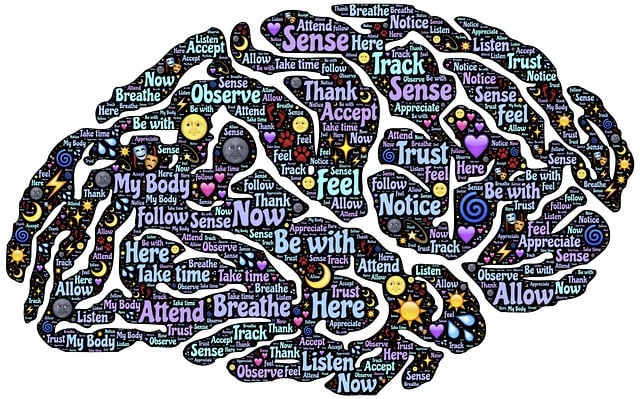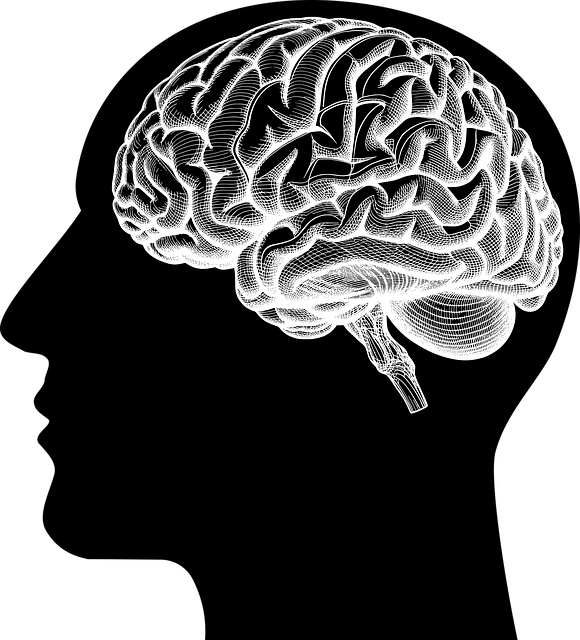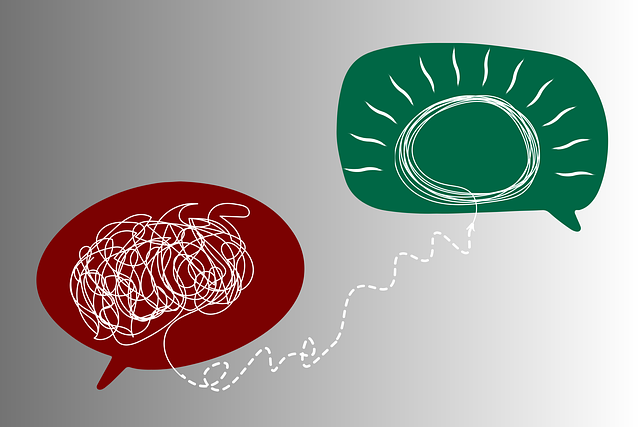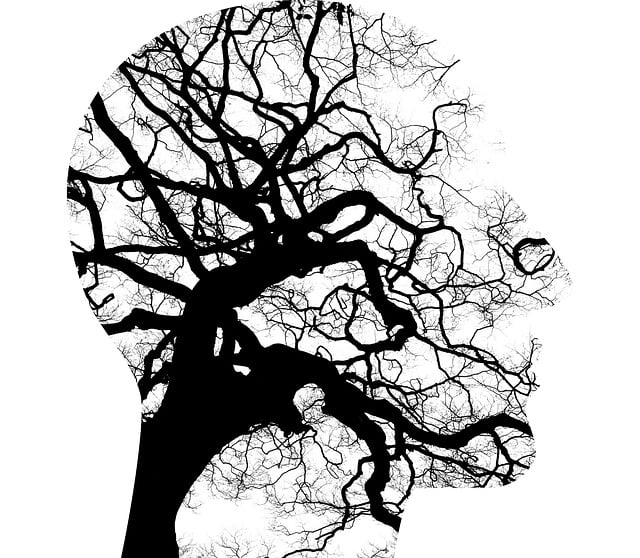Diagnosing mental illness accurately is challenging due to subjective symptoms and comorbidities, especially in trauma survivors. Wheat Ridge Abuse Survivors Therapy (WRAST) offers specialized support with innovative therapy techniques for abuse survivors, focusing on holistic healing and long-term anxiety relief. Enhancing diagnosis accuracy involves integrating Mental Health Education Programs, Community Outreach, risk assessment tools, and advanced assessment methods. WRAST's approach, along with mental health awareness workshops, promotes early identification and improved overall diagnosis accuracy. A multifaceted strategy combining training, education, peer mentoring, evidence-based practices, community engagement, open dialogue, and stigma reduction is crucial for successful mental illness diagnosis and treatment.
Mental illness diagnosis accuracy has been a subject of growing concern, with many challenges impacting the process. This article explores innovative efforts to improve diagnostic accuracy, focusing on unique approaches like Wheat Ridge Abuse Survivors Therapy. We delve into enhanced tools, critical training for healthcare professionals, and community-driven strategies that promise transformative changes in mental health care. By understanding these challenges and implementing effective solutions, we can ensure more accurate diagnoses and improved patient outcomes.
- Understanding Mental Illness Diagnosis Challenges
- Wheat Ridge Abuse Survivors Therapy: A Unique Approach
- Enhancing Diagnostic Tools and Techniques
- Training and Education for Healthcare Professionals
- Supportive Community Engagement Strategies
Understanding Mental Illness Diagnosis Challenges

Diagnosing mental illness accurately is a complex task due to its multifaceted nature and varying presentations across individuals. Many factors contribute to the challenges faced by mental health professionals in this regard. One significant hurdle is the subjective experience of symptoms, which can vary greatly from person to person. This variability makes it difficult to establish consistent diagnostic criteria that apply universally. Additionally, comorbid conditions—where an individual suffers from multiple mental health disorders simultaneously—are common and further complicate the diagnosis process.
Wheat Ridge Abuse Survivors Therapy highlights a critical aspect of these challenges. Survivors of trauma often present with complex symptoms that may mimic those of other mental illnesses, making accurate diagnosis more intricate. The integration of Mental Health Education Programs Design and Community Outreach Program Implementation strategies can enhance diagnostic accuracy. Educating both professionals and the public about mental health increases awareness and facilitates early identification. Moreover, risk assessment tools for mental health professionals, such as those used in Wheat Ridge Abuse Survivors Therapy, can aid in recognizing subtle signs and symptoms, thereby improving overall diagnosis accuracy.
Wheat Ridge Abuse Survivors Therapy: A Unique Approach

Wheat Ridge Abuse Survivors Therapy (WRAST) offers a unique and specialized approach to mental health support, focusing on survivors of abuse. This innovative program recognizes the complex nature of trauma and its impact on individuals’ mental wellness. By providing tailored therapy sessions, WRAST aims to enhance coping skills development and promote anxiety relief for those who have experienced abusive situations.
The therapy model incorporates various techniques to cater to diverse needs, ensuring that each survivor receives personalized care. This holistic approach encourages clients to process their experiences, build resilience, and develop effective strategies for managing their mental health in the long term. WRAST’s dedicated team of professionals is committed to empowering individuals to take control of their mental wellness, fostering a sense of healing and growth.
Enhancing Diagnostic Tools and Techniques

In recent years, efforts to enhance mental illness diagnosis accuracy have gained significant traction, with a focus on refining tools and techniques. This includes integrating advanced assessment methods, such as evidence-based therapeutic approaches like those offered at Wheat Ridge Abuse Survivors Therapy (WRAST), which prioritize individualization and holistic understanding of patients’ experiences. By employing these sophisticated strategies, healthcare professionals can more accurately identify symptoms and underlying causes, leading to personalized treatment plans that address specific needs.
Furthermore, promoting coping skills development and stress management workshops through organizations dedicated to mental health awareness plays a crucial role in improving diagnosis accuracy. These initiatives empower individuals with effective self-care routine development tools, enabling them to proactively manage their well-being. This proactive approach not only supplements professional diagnosis but also fosters better overall mental health, ultimately contributing to more precise and impactful treatment outcomes.
Training and Education for Healthcare Professionals

Improving mental illness diagnosis accuracy involves a multifaceted approach, with significant emphasis on training and education for healthcare professionals. This includes specialized workshops, continuous learning opportunities, and peer-to-peer mentoring programs designed to enhance understanding of complex mental health conditions. By integrating evidence-based practices and staying current with the latest research, healthcare providers in Wheat Ridge Abuse Survivors Therapy can deliver more precise diagnoses.
Self-esteem improvement techniques, for instance, have proven effective in enhancing patient communication and clinical insight. Mental wellness coaching programs development further enables professionals to tailor interventions, focusing on risk assessment for mental health professionals to mitigate potential harm. These efforts collectively strive to ensure that individuals seeking help receive accurate evaluations, paving the way for effective treatment planning and improved overall mental wellness.
Supportive Community Engagement Strategies

Engaging the community is a powerful strategy to enhance mental illness diagnosis accuracy and improve overall well-being. Supportive Community Engagement Strategies focus on building connections and fostering an environment where individuals, especially those recovering from trauma like those at Wheat Ridge Abuse Survivors Therapy, can openly discuss their experiences and seek help without stigma. This involves hosting awareness events, training community members as peer supporters, and integrating mental health education into local schools and workplaces. By doing so, communities become more equipped to recognize the signs of mental illness, providing early intervention and support.
Effective communication is at the heart of these efforts. Implementing Communication Strategies that emphasize active listening and empathy encourages open dialogue about mental health. Mental Illness Stigma Reduction Efforts play a crucial role in this process, as they help dispel myths and create an atmosphere where individuals feel safe to share their struggles. Additionally, Coping Skills Development programs equip community members with the tools needed to support those facing mental health challenges, fostering a culture of care and understanding.
Mental illness diagnosis accuracy has seen significant advancements through innovative approaches like Wheat Ridge Abuse Survivors Therapy, enhanced tools, and comprehensive training. By combining these strategies with supportive community engagement, we can ensure better care for those facing mental health challenges. Continued efforts to improve diagnostic accuracy are vital, fostering a more understanding and compassionate society.














